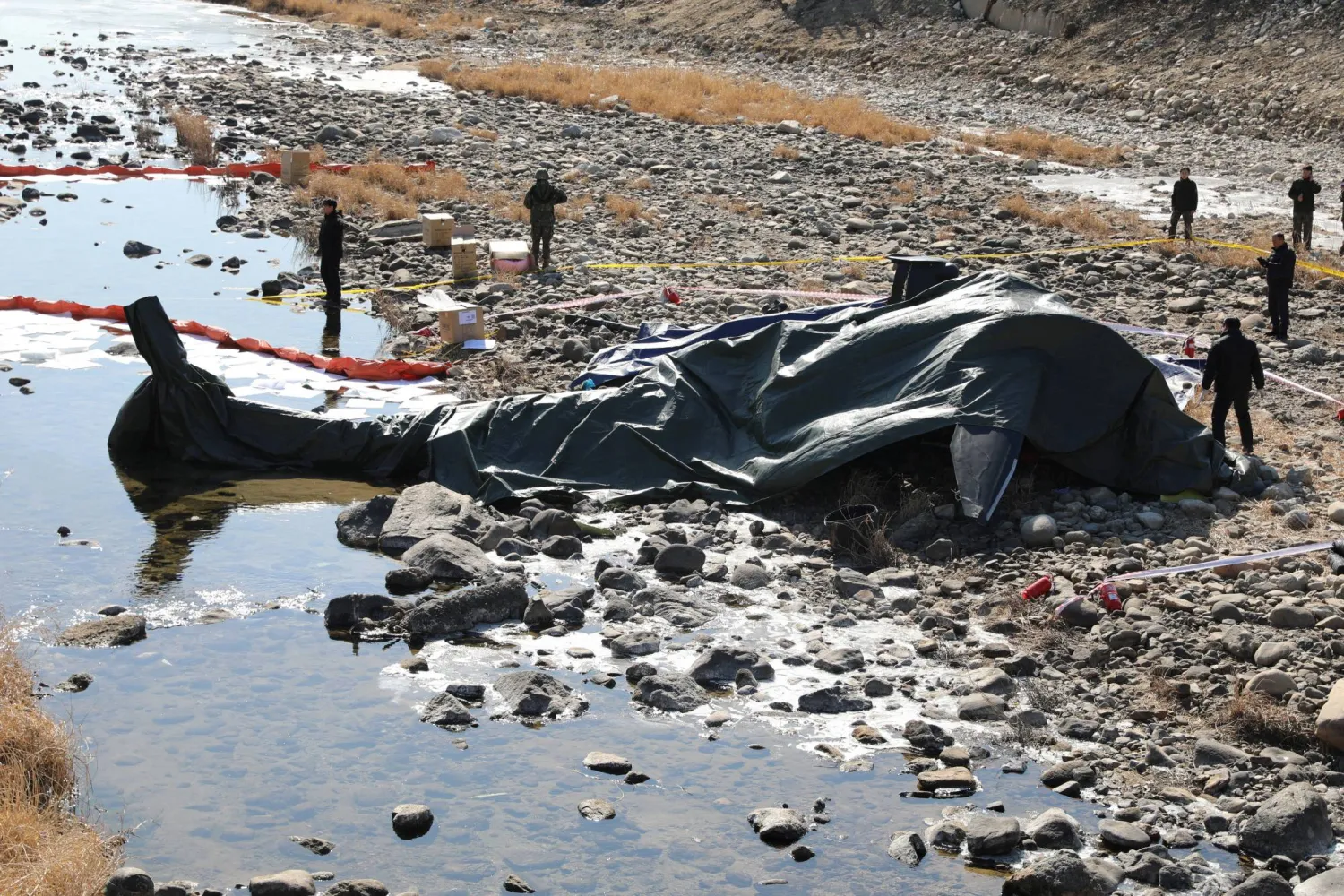North Korean leader Kim Jong Un underscored the importance of strengthening naval power as he toured a naval base construction site, state media KCNA reported on Sunday.
"Now that we are soon to possess large surface warships and submarines which cannot be anchored by the existing facilities for mooring warships, the construction of a naval base for running the latest large warships has become a pressing task," Kim was quoted saying.
During the tour, Kim stressed the need to build a naval port capable of operating weapons systems of the warships and revealed military measures to deploy anti-aircraft and coastal-defense systems for defending the port, according to the report.
Kim cited geopolitical advantages of the site for the country, bordered by the sea on both the east and west sides. The location of the site was not specified in the report.
A recent satellite imagery analysis by 38 North indicated that North Korea's newest ballistic missile class submarine (SSB), the "Sinpo-C" class, was undergoing an extensive fitting-out period at the Sinpo South Shipyard.
In a separate visit to a shipyard, Kim ordered to increase national investments in shipbuilding projects so that immediate tasks and long-term plans for laying the foundation for the development of the shipbuilding industry are pushed forward as scheduled.
KCNA also reported on Sunday Kim's visit to a defense industrial enterprise, where he stressed the need to make munitions production more scientific and modernized to guarantee the performance of newly-developed military hardware, and an inspection of an artillery academy.
Separately, North Korea condemned a recent consultation meeting and simulation drill on extended deterrence conducted by the United States and South Korea, according to a Sunday statement carried by KCNA.
The foreign ministry described the activities as "reckless moves of the hostile forces disturbing the regional strategic stability and increasing the possibility of a nuclear clash".
"The DPRK will continue to take practical measures to cope with the long-term nuclear confrontation with the US," the ministry said, using North Korea's official name.
Meanwhile, North Korea continued its campaign of launching trash balloons towards South Korea for the fifth consecutive day on Sunday, the Yonhap news agency reported, citing the South's Joint Chiefs of Staff.









